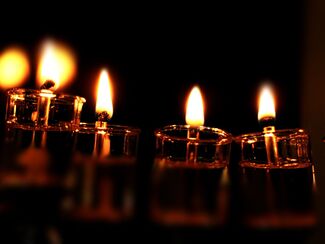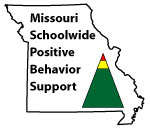
Honestly, because I didn’t recognize its presence in Scripture, understanding that it is an event that took place between the Testaments, but after I listened to a sermon by one of our brothers - Steve Higginbotham, who preaches in Knoxville, Tennessee - I was compelled to relay to you some the message that he delivered last year to the congregation there.
Simply put, Hanukkah (or Chanukah) is the eight-day, wintertime, Jewish “festival of lights”. No doubt, you have seen the typical symbols of the celebration - a nightly menorah lighting and the spinning of a dreidel.
The Hebrew word Chanukah means dedication, and is thus named because it celebrates the rededication of the Holy Temple - but that gets ahead of where we are.
Let’s head in and see what we can see.
Prophecy of Epiphanes
This account must go back to the book of Daniel. We’ll call it the Prophecy of Epiphanes. Daniel introduces a man who calls himself Antiochus IV Epiphanes. We know of a man named Jesus, who is introduced in Matthew 1:23: “Behold, the virgin will conceive and give birth to a Son, and they shall name Him Immanuel,” which translated means, ‘God with us.’” Jesus - Immanuel - is understood to be one with the Father. But Antiochus Epiphanes, by the name he demanded others call him, makes a similar claim: the word Epiphanes means “the manifested one”. Can you imagine anyone claiming to be such with no proof or authority to do so? Oprah Winfrey can’t make that claim. Neither can Mariah Carey. Elvis was the King of Rock and Roll, but he wasn’t the incarnate Son of God. Michael Jackson was the Prince of Pop, but not the prophesied Messiah. No cult leader should ever make that claim, but many have. And the same is true for Antiochus.
In the second chapter of Daniel, we find Nebuchadnezzar’s dream. You remember how Daniel is finally called in to interpret the dream with the power of God. I’ve never had a dream like it. Nebuchadnezzar has a vision of a statue that was made of different metals from head to foot. Daniel tells the king about the rise and fall of kingdoms - world powers. He predicts, with the help of God, about Babylon, the Medes and Persians, and then the Grecian and Roman empires. During the Roman empire, some 500 years later, another kingdom, unlike any of these, will be established. It will never fall. That kingdom is the church.
Daniel prophesies with great detail. It is during the Greek empire that he tells us about Alexander the Great, a big personality and military leader who would conquer and conquer. Historically, Alexander dies in his thirties. When he dies, his kingdom is divided among four generals. Daniel says that kingdom will be divided into four parts. One group, called the Seleucids. One of those would come into the Holy Land and desecrate the temple. He would stop the daily sacrifices. You can read Daniel 8 and 11, which comes to pass in history.
The man who stops this worship and disrespects the temple so badly is Antiochus IV Epiphanes, the so-called “manifested one”. He even puts it on Greek coins: “King Antiochus, God Manifest, Bearing Victory”. In 169 BC, this man goes into the temple, stops daily sacrifices, offers an unholy and unaccepted pig as a sarcastic sacrifice to God, in contempt for the Jewish people. He establishes an altar of Zeus to be worshiped in the Jewish temple. He brings in temple prostitutes.
The Jews mock him by calling him Epimanes. It sounds similar to Epiphanes, but the Jews call him Epimanes, which means “the mad man”. Imagine that kind of government - one that comes into your religious world with that kind of disrespect and open contempt.
The Jews don’t like it either, and there are guerrilla wars - the Maccabean Wars - as they rebel against this proud, egotistical maniac. They drive him out and then have to rededicate the temple. They need to purify things. But they only find one jar of oil to light the lamps. As Higginbotham preached, “I don’t know if this is true or not, but this is what is said about it…” They used that oil, which was enough for a single day, to light the lamps for eight days, while they pressed new olives to get more oil. This is the event that is occurring when Jesus comes to Jerusalem in John 10.
There are other miracles like this. A widow with oil that doesn’t get used up in 2 Kings 4 is one example. Jesus multiplying the loaves and fishes is another. So on Hanukkah, there are eight candles that are lit to celebrate and commemorate the eight days that the oil lit the re-purifying of the temple. All of this is said to have happened in 164 BC, and that is why it is known as the Festival of Lights.
Light of the World
We understand that there is a tremendous difference between a man who was prophesied who claimed to be “god manifested”, but now we have Immanuel, God with us. What a tremendous contrast! One is a man who makes grand claims and royal edicts - like the Burgermeister Meisterburger in the seasonal special Santa Claus Is Coming to Town - and the other is the Messiah, who consistently proves, through actions, miracles, and words, that he is God with us.
There is Jesus, in John 10, walking through the temple area. “At that time the Feast of the Dedication took place in Jerusalem; it was winter, and Jesus was walking in the temple area, in the portico of Solomon.” Those two verses, 22 and 23, now come to life with meaning! The celebration of this miraculous provision of light is happening when
Jesus walks in. I want you to consider the irony. At this moment, when the Jews are celebrating God’s provision of light, in walks the Light of the world.
It’s what He talked about in John 3:19-21: “And this is the judgment, that the Light has come into the world, and people loved the darkness rather than the Light; for their deeds were evil. For everyone who does evil hates the Light, and does not come to the Light, so that his deeds will not be exposed. But the one who practices the truth comes to the Light, so that his deeds will be revealed as having been performed in God.” That’s incredible!
That’s a claim He makes in John 8:12, saying, “I am the Light of the world; the one who follows Me will not walk in the darkness, but will have the Light of life.” That’s remarkable!
It’s what He says in John 9:5: “While I am in the world, I am the Light of the world.” That’s amazing! He is very convincing.
But they don’t see it. It is the epitome of irony. They don’t acknowledge Him like that at all. Instead they surround Him accusingly in John 10:24, and they ask, “How long will You keep us in suspense? If You are the Christ, tell us plainly.” They just want to draw out of Him what they know is His claim to be the One, the true manifestation of God on earth. They celebrate the Festival of Lights, and when the brightest Light of all walks in, they’re wearing shades.
Jesus answers them: “I told you, and you do not believe; the works that I do in My Father’s name, these testify of Me.” He says, you don’t get it. Why? Because, verse 26 says, they are not His sheep. His sheep understand, but these people, celebrating this holiday, refuse to see the light. Jesus says, “My sheep listen to My voice, and I know them, and they follow Me; and I give them eternal life, and they will never perish; and no one will snatch them out of My hand. My Father, who has given them to Me, is greater than all; and no one is able to snatch them out of the Father’s hand. I and the Father are one.”
Then, verse 31: “The Jews picked up stones again to stone Him.” They reject Him. It’s the 21st Century, and they still reject Him as their Messiah. He is the object of the prophecy of Isaiah 7:14: “Therefore the Lord Himself will give you a sign: Behold, the virgin will conceive and give birth to a son, and she will name Him Immanuel,” but that makes no dent in convincing them that their Savior has arrived.
Perhaps the center of meaning for us today, in Carthage, Missouri, is that we should celebrate more the arrival of the Light of the world. From time to time, should we not be more joyous, knowing that Jesus is Immanuel, and even if after His death He arose and ascended to the Father, He remains “God with us”.
As we continue to study the culture of the Bible, the history contained between its covers, archaeological evidence, and geographical truths, we can even see evidence in the irony that Christ arrives at the temple during Hanukkah. When you think of Hanukkah, think of an all-knowing God - the God who sees the end of a thing from the beginning, the God who times arrivals and departures precisely for us to gain tremendous perspective when we look deeper into them. He sees this celebration and He provides the irony of their missing the true Light, their deliverer. Don’t make the same mistake!
Steve Higginbotham preached, “While the Jews spend this time to celebrate - and rightly so - the festival of lights and what happened to them historically, how much more should we celebrate the fact that Jesus is the light of the world and is willing to save us from our sins!”






































